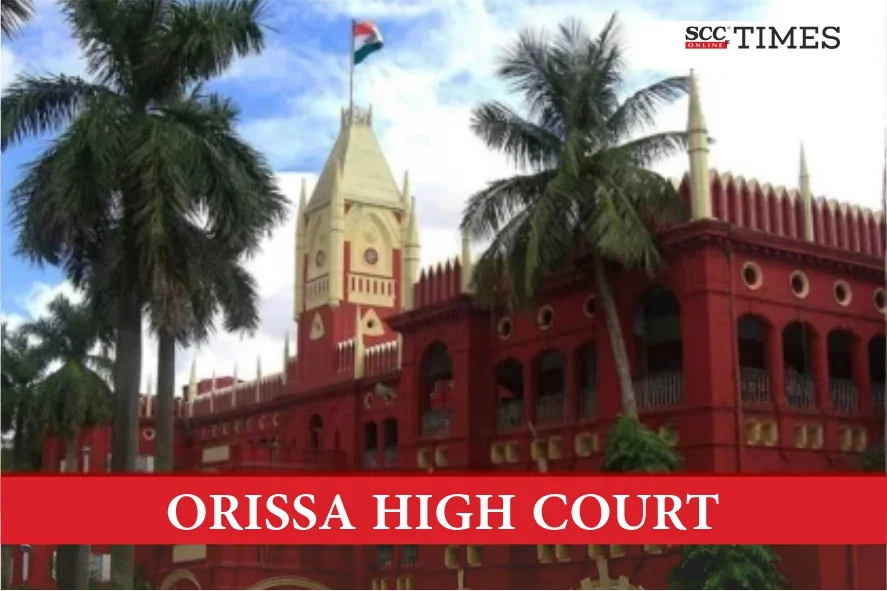Orissa High Court: In a criminal petition seeking registration of First Information Report (FIR), the Bench of G. Satapathy, J. the Court reiterated that the correct approach in case of non-registration of FIR is to approach the jurisdictional Magistrate by invoking the provisions of law.
Further, the Court reiterated that before passing an order for investigation, the Magistrate has to hear the submissions of the police officer, apart from considering the application supported by an affidavit made by the complainant to the Superintendent of Police and making proper inquiry.
The Court noted that in the matter at hand, the petitioner did not approach the Magistrate and directly approached the Court. Outlining on the approach of the aggrieved person for non-registration of FIR on his complaint, the Court said that the same is mentioned under Chapter XIII of the Bharatiya Nagarik Suraksha Sanhita, 2023 (‘BNSS’) and Section 175(3) therein provides the Magistrate with powers to order an investigation on the application of the aggrieved persons whose complaint has been refused by the police to register it as an FIR, provided the aggrieved persons satisfies the Magistrate to direct for an investigation.
The Court also relied on Sakiri Vasu v. State of Uttar Pradesh (2008) 2 SCC 409, wherein, it was discussed that the High Court should discourage the practice of filing a writ petition or petition under Section 482 CrPC simply because a person has a grievance that his FIR has not been registered by the police, or after being registered, proper investigation has not been done by the police. For this grievance, the remedy lies under Sections 36 and 154(3) before the police officers concerned, and if that is of no avail, under Section 156(3) CrPC before the Magistrate or by filing a criminal complaint under Section 200 CrPC and not by filing a writ petition or a petition under Section 482 CrPC.
Further, the Court noted that in Om Prakash Ambadkar v. State of Maharashtra, 2025 SCC OnLine SC 238, the Supreme Court held that the Magistrate is not expected to mechanically direct investigation by the police without first examining whether the facts and circumstances of the case, an investigation by the State machinery is required or not. If the allegations made in the complaint are simple, where the Court can straight away proceed to conduct the trial, the Magistrate is expected to record evidence and proceed further in the matter, instead of passing the buck to the police under Section 156(3) of the CrPC.
In light of Om Prakash Ambadkar (supra), the Court reiterated that unlike Section 156(3) of the CrPC, any Magistrate, before ordering an investigation under Section 175(3) of the BNSS is required to-
(a) consider the application, supported by an affidavit, made by the complainant to the Superintendent of Police under Section 173(4) of the BNSS;
(b) conduct such enquiry as he thinks necessary; and
(c) consider the submission made by the police officer.
The Court stated that it is mandatory for the Magistrate to consider the submissions of the Police Officer concerned, to apply his mind judicially while considering both the complaint and the submission of the police officer, thereby ensuring that the requirement of reasoned orders is complied with more effectively and comprehensively.
[Swarnalata Jena v. State of Odisha, 2025 SCC OnLine Ori 278, decided on: 03-02-2025]
Advocates who appeared in this case :
For Petitioner: R.D. Mohapatra, Advocate
For Respondents: S.K. Rout, Addl. PP




